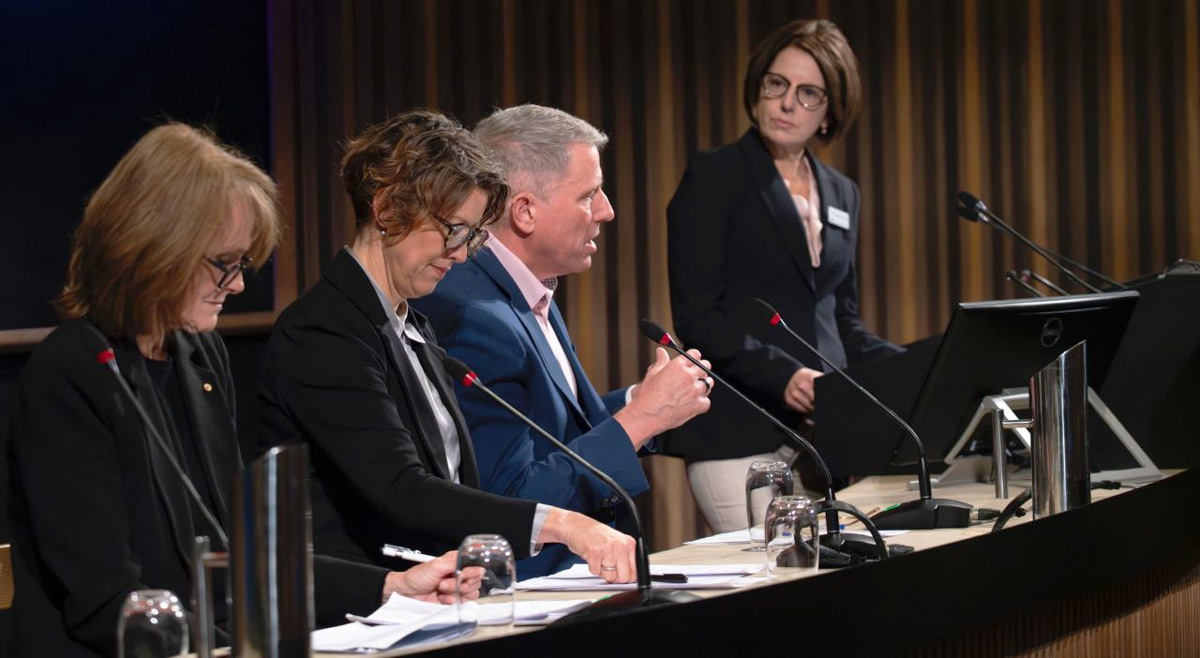
Deepening Australia’s research and industry relationship with European countries was the focus of an event held at the Shine Dome on 9 July 2025.
Co-hosted with EURAXESS Australia & New Zealand, the Delegation of the European Union to Australia, and the French, German and Italian embassies, the Australian Academy of Science convened a diverse group of stakeholders from academia, industry, government and the diplomatic community.
The forum explored the strategic benefits of deepening Australia’s research and industry relationship with Europe, in particular via association with Horizon Europe.
Horizon Europe is the world’s largest research and innovation program, offering access to over A$163 billion in funding opportunities.
The event convened a distinguished group of speakers and panelists, including representatives from the European Union who highlighted existing valuable relationships between Australia and various European countries. They also emphasised the success of Australian researchers in securing funding from European institutes; having a notable 30% success rate, nearly double the general success rate of 17% – highlighting the high calibre and global competitiveness of Australia’s R&D sector.
Australia’s Chief Scientist, Professor Tony Haymet delivered the keynote address, reflecting on the rich history of collaborations between Australian and European researchers. He highlighted the mutual benefits derived from these partnerships – ranging from access to world-class infrastructure to the value of cross-cultural exchange.
“World-leading science is very often international science – no country can go it alone when tackling big challenges,” Professor Haymet said.
Ms Signe Ratso, Deputy Director-General, Directorate-General for Research and Innovation at the European Commission and the Chief Negotiator for Horizon Europe Association, provided the second keynote address. She emphasised the key factors that position the European Union as an attractive partner for international research collaboration – namely its substantial investment in R&D, its world-leading public research institutes, and the quality of its publications.
A panel discussion was subsequently moderated by Academy Chief Executive Anna-Maria Arabia OAM, who provided an overview of the current landscape of Australia–international research collaborations. The data presented demonstrated that Australia has strong scientific research collaborations with the US, China and the UK, as well as with individual countries in the European Union.
To illustrate the science and technology opportunities available to Australia through associations with Horizon Europe, Ms Arabia’s presentation examined Australia’s research collaborations in areas aligned to three of the Australian Government’s Future Made in Australia priorities: green metals, low-carbon liquid fuels, and clean energy manufacturing. The analysis revealed a consistent pattern of strong collaborations with Europe across most of the fields, emphasising the EU as a critical research partner to advance Australia’s interests. It also highlighted a strong track record of research collaboration with individual European nations in these priority areas, which can be leveraged via association with Horizon Europe. The data also made clear that diversifying Australia’s international research collaborations mitigates risks and enables us to benefit from global knowledge generation.
“Aside from China, in aggregate the EU is leading in most of these fields,” Ms Arabia said.
“In aggregate, the EU is a strong performer across all sciences, including the Future Made in Australia areas. If this is the trend across individual countries when aggregated, we would expect amplified capability via the Horizon Europe program,” she said.
The event also featured contributions from former Chief Scientist Dr Cathy Foley, Australian Academy of Technological Sciences and Engineering CEO Kylie Walker, and representatives from the Group of Eight and Universities Australia. In addition, researchers with extensive experience collaborating across Australian and European institutions shared practical insights and reflections, all of whom emphasised the potential for increased output and impact through fostering deeper Australia-EU research relationships. Iain Cossar, representing New Zealand’s Ministry of Business, Innovation and Employment, highlighted the economic benefits accrued by New Zealand via association with Horizon Europe since 2023.
The Academy acknowledges and thanks the Delegation of the European Union to Australia, EURAXESS Australia & New Zealand, Embassy of Germany, Embassy of France, and Embassy of Italy as co-hosts of the event.
© 2026 Australian Academy of Science